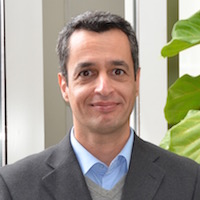Mental well-being essential for health professionals in complex emergency settings
June 28, 2017
As the number of refugees has increased globally in the last two decades, so has the need for emergency health-care workers. More often than not, these medical and health personnel find themselves working long hours within zones of conflict and war, often with inadequate resources, to address the needs of people suffering homelessness, injury, trauma and grief.
But who heals the healers?

Dr. Dilshad Jaff
A new commentary, co-authored by Dilshad Jaff, MD, MPH, adjunct assistant professor of maternal and child health and research adviser for conflict prevention and disaster preparedness at the UNC Gillings School of Global Public Health, describes the value of ensuring mental well-being for medical and health providers – so as to maintain their effectiveness and personal resiliency.
Jaff and colleagues call upon humanitarian aid organizations to use proven mental health strategies, including pre-deployment training, team-building, mindfulness techniques, physical exercise and others, to protect the health-care workers and the vulnerable populations they serve.
“Acute episodes of stress can have the beneficial effect of enhancing our reactions and abilities,” they write, “but can also lead to further mental and physical distress. According to some studies, between 70 percent and 89 percent of humanitarian aid workers have experienced mental health issues related to their jobs.”
The authors describe four obstacles to the successful implementation of mental health interventions for health professionals in complex settings. They include mental health stigma around relief work (e.g., a culture of heroism, in which the heroes provide support but should not require support themselves); limited organizational capacity to provide mental health support for staff members; structural inequalities; and lack of available mental health services in regions where the health-care personnel work.
The authors propose a number of strategies for organizations working in complex emergency settings. These include:
- Train staff in mental health “first aid” and to recognize and address mental health issues;
- Organize awareness-raising activities, such as online courses or workshops;
- Establish comprehensive and supervised peer-support systems;
- Conduct systematic research to understand the scope of the problem and to develop effective mechanisms; and
- Improve organizational response, flexibility and adaptation.
“None of us working in complex emergency settings are immune to this issue,” Jaff said. “No matter how well trained or educated a health provider is, he or she is not immune to the stresses of the work, from language and cultural differences, to logistical questions about how to function effectively in an unfamiliar environment, to the presence of conflict and war. Failure to address the need for mental health awareness and services prevents our efforts from being effective and challenges our abilities to continue the work.”
Co-authors of the commentary are Johanna Schubert, master’s student in public health leadership at the Gillings School; Mary Surya, master’s student in the psychology/mental health nurse practitioner program at the UNC School of Nursing; and Barbara Stillwell, MS, senior director of health workforce solutions at IntraHealth International.
Gillings School of Global Public Health contact: David Pesci, director of communications, (919) 962-2600 or dpesci@unc.edu
